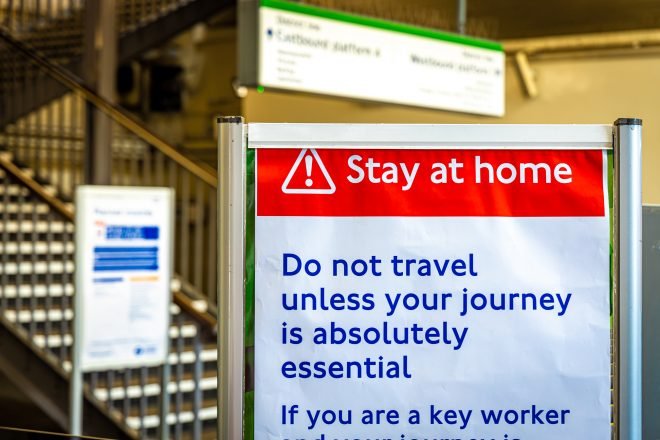Advertisment
Balancing the response to covid-19

Article written by Christine Clark
As politicians grapple with the idea of a lockdown or a more stringent lockdown GPs have called for an end to the ‘one-track’ response – using covid deaths alone as the unilateral measure of harm
It is often the case that the people at the coal face can see clearly what is going on and are best placed to advise on what to do.
About 10 days ago a group of 66 expert medical generalists wrote an open letter to Secretary of State for Health, Matt Hancock. In the letter they argue that whilst a lockdown was justified in the early stages of the pandemic when little was known about the virus, the position is different now and a further lockdown now risks harms to long-term health and well-being that outweigh the benefits.
They say, “We are concerned due to mounting data and real-world experience, that the one-track response threatens more lives and livelihoods than Covid-lives saved.”
They point out that 30,260 excess deaths have occurred in private homes since March but fewer than 1 in 10 of these was due to covid-19. There has also been an increase in acute cardiovascular deaths, most of which did not relate to covid-19.
In addition, there is a signal that child suicide death rates in the UK increased during lockdown and contributing factors appeared to include restriction to education and other activities, disruption to care and support services, tensions at home and isolation.
Finally, the older, ‘shielded’, people with multiple long-term health conditions – the very group that restrictions were intended to protect – experienced higher levels of depression, anxiety and loneliness compared with those who were not shielding and were more likely to be less physically active than usual.
The authors of the letter make a plea for ongoing restrictions and infection control measures to be balanced against “the myriad harms, both logged and latent”.
They close by saying “Covid deaths alone can no longer be used as the unilateral measure of harm. Public health goes beyond deaths and ICU beds.” Adding, “the wider harm to babies, children, young people and adults of all ages can no longer be ignored”.
Although there is a relentless focus on death rates in the media it is perhaps worth reminding ourselves that the number of deaths registered in the UK in Week 40 was 11,444 of which 343 involved coronavirus. The number of deaths due to all causes was 591 deaths higher than the five-year average. Future analyses will tell whether this was due to late diagnoses or missed treatments for other treatable conditions.
The Care Quality Commission report, The state of health care and adult social care in England 2019/20, published 15th October 2020 includes a detailed description of the impact of the pandemic on healthcare including details of reductions in referrals and delays in treatment.
The CQC noted that, “The impact of COVID-19 on the NHS in terms of elective, diagnostic and screening work has been enormous. Some life-changing operations have still not been rescheduled and there are people whose cancer has not been diagnosed or treated. As we enter a second wave, there must be learning to ensure that non-COVID-19 patients are not left behind.”
CMC16.10.20





